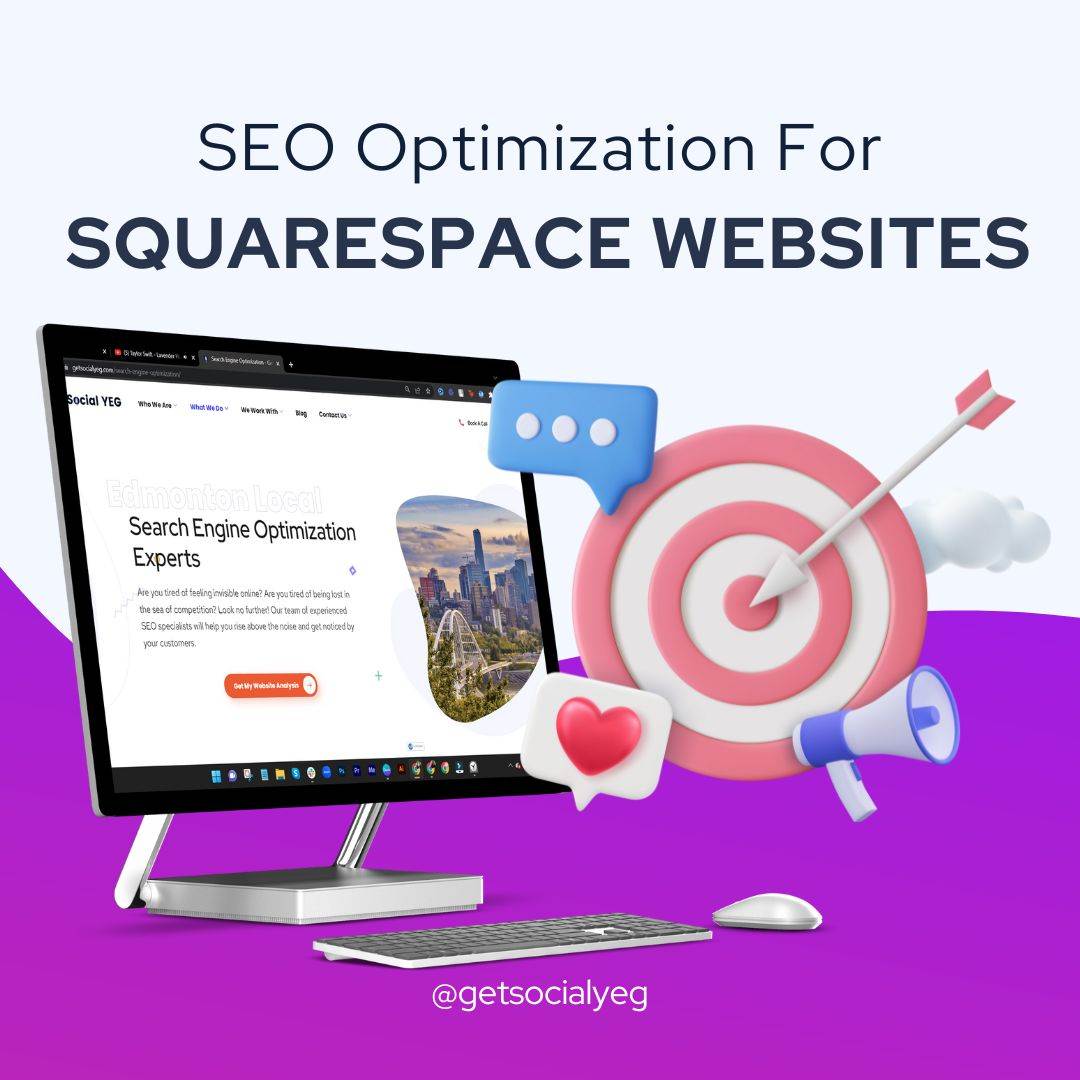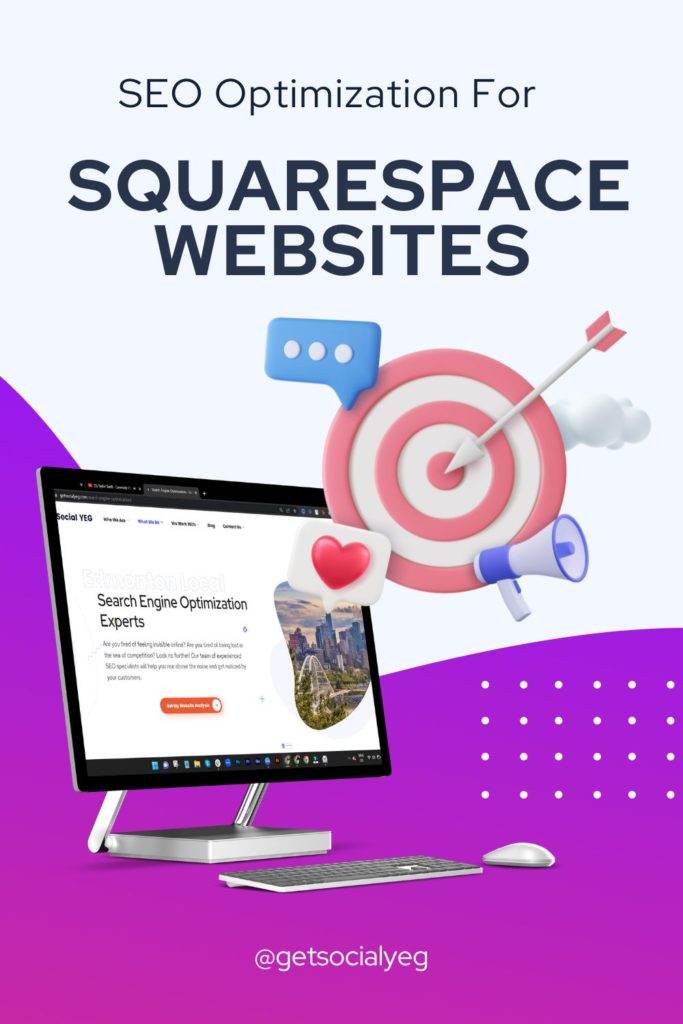
If you’re a small business owner or a blogger looking to create a professional-looking website, Squarespace is a great option. It’s user-friendly, has a wide range of customizable templates, and offers a variety of features that make it easy to create and manage your website.
However, simply creating a website isn’t enough. To drive traffic to your site and improve your search engine rankings, you need to optimize your website for SEO.
In this blog, we’ll cover the basics of SEO and how to optimize your Squarespace website for the best results.
What is SEO?
SEO, or search engine optimization, is the process of improving the visibility of a website in search engine results pages (SERPs). The goal of SEO is to increase the quantity and quality of traffic to a website by ranking it higher in search engine results.
Why is SEO important?
There are several reasons why SEO is important for your website:
Increased traffic: By ranking higher in search engine results, your website will receive more organic traffic from users searching for relevant keywords.
Improved credibility: A website that ranks well in search results is seen as more credible and trustworthy by users.
More brand awareness: A higher search ranking can increase brand awareness for your business.
Improved revenue: A higher ranking can lead to increased revenue for your business through increased traffic and conversions.

How does Squarespace handle SEO?
Squarespace is a popular platform for small business owners and bloggers because it offers a variety of features that make it easy to create and manage a professional-looking website. It also offers some basic SEO features that can help improve your search rankings.
Some of the built-in SEO features that Squarespace offers include:
Title tags and meta descriptions
Title tags and meta descriptions are important for SEO because they help search engines understand the content of your page and how it relates to specific keywords. Squarespace allows you to customize your title tags and meta descriptions for each page on your website.
Image alt tags
Image alt tags are important for SEO because they help search engines understand the content of your images. Squarespace allows you to add alt tags to your images to improve their visibility in search results.
Custom URLs
Custom URLs help improve your search rankings by making it easier for search engines to understand the content of your pages. Squarespace allows you to customize the URLs for each page on your website.
Sitemap
A sitemap is a list of all the pages on your website that helps search engines understand the structure of your site. Squarespace automatically generates a sitemap for your website to help improve your search rankings.
Mobile-friendly design
With more and more people using their smartphones to search the web, it’s important to have a mobile-friendly website. Squarespace offers a variety of mobile-friendly templates to ensure that your website is easy to navigate on a smartphone.
SSL certificate
An SSL certificate helps protect the sensitive information on your website, such as passwords and credit card numbers. It also helps improve your search rankings because Google prefers websites with SSL certificates. Squarespace offers a free SSL certificate for all websites on their platform.
Fast loading speed
A slow-loading website can hurt your search rankings and drive away potential visitors. Squarespace uses optimized servers and caching to ensure that your website loads quickly.
SEO optimizing your Squarespace website
While Squarespace offers a variety of built-in SEO features, there are still ways you can optimize your website for better search results.
Here are some tips for optimizing your Squarespace website for SEO:
Research keywords: Beforwe you start optimizing your website, it’s important to research the keywords that your target audience is using to search for your products or services. You can use a tool like Google’s Keyword Planner to find relevant keywords and see how much traffic they’re getting.
Use keywords in your content: Once you’ve identified your target keywords, it’s important to use them in your content. Ensure to include your keywords in your title tags, meta descriptions, and website content. However, don’t stuff your content with keywords – this can hurt your search rankings.
Optimize your images: In addition to using alt tags, optimize your images for SEO by using descriptive file names and compressing your images to reduce their file size. This will help your images rank higher in search results and improve the overall loading speed of your website.
Create quality content: In addition to using keywords, it’s important to create high-quality, informative content that provides value to your audience. This will not only help improve your search rankings, but it will also increase the likelihood of people visiting and staying on your website.
Use internal linking: Internal linking is the process of linking to other pages on your website. This helps search engines understand the structure of your website and can also improve the user experience. Make sure to use relevant, descriptive anchor text when linking to other pages on your website.
Use external linking: In addition to internal linking, it’s also important to use external linking. This is the process of linking to other websites that provide valuable information to your audience. External linking helps improve your credibility and can also improve your search rankings.
Use social media: Social media can help drive traffic to your website and improve your search rankings. Make sure to include links to your website on your social media profiles and share your website’s content on your social media channels.
Use header tags: Header tags help structure your content and make it easier for search engines to understand the content of your page. Squarespace allows you to use header tags (H1, H2, etc.) to structure your content. Make sure to use header tags appropriately and use your keywords in your header tags.
Use Google Analytics: Google tool that allows you to track the performance of your website. It provides valuable data on your website’s traffic, including how people are finding your website and what keywords they’re using to search for your products or services. This information can help you identify opportunities for improvement and optimize your website for better search results.
Regularly update your content: Google prefers websites that are regularly updated with fresh, relevant content. Make sure to regularly update your website with new content to help improve your search rankings.
Conclusion
Squarespace offers a variety of built-in SEO features that can help improve your search rankings. However, it’s important to optimize your website for the best results. By following the tips above, you can improve the visibility of your website in search engine results and drive more traffic to your site. Want to learn more? Follow us on Instagram!














